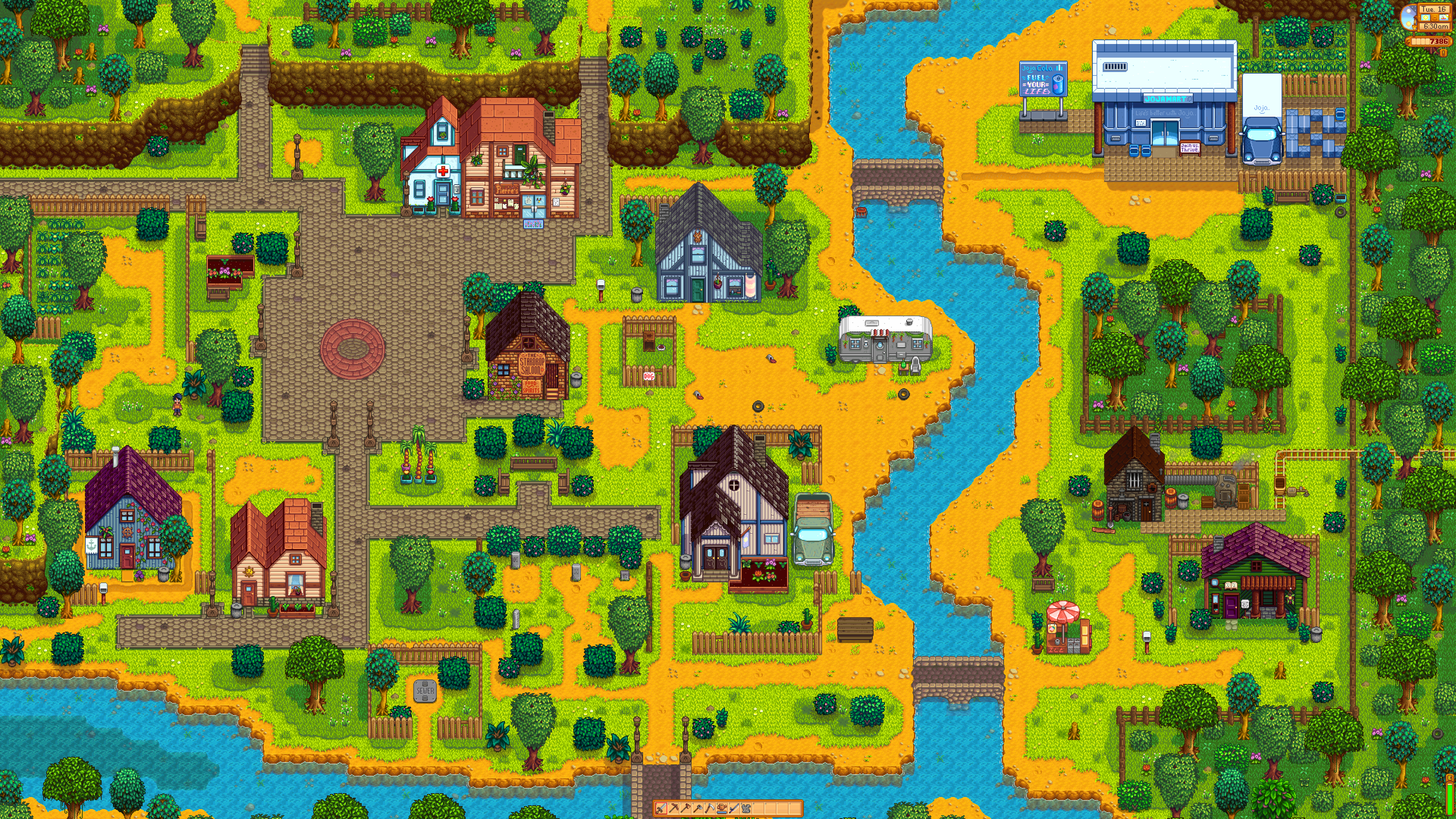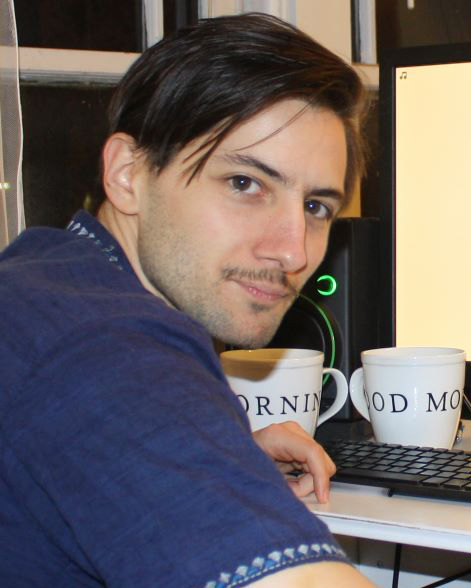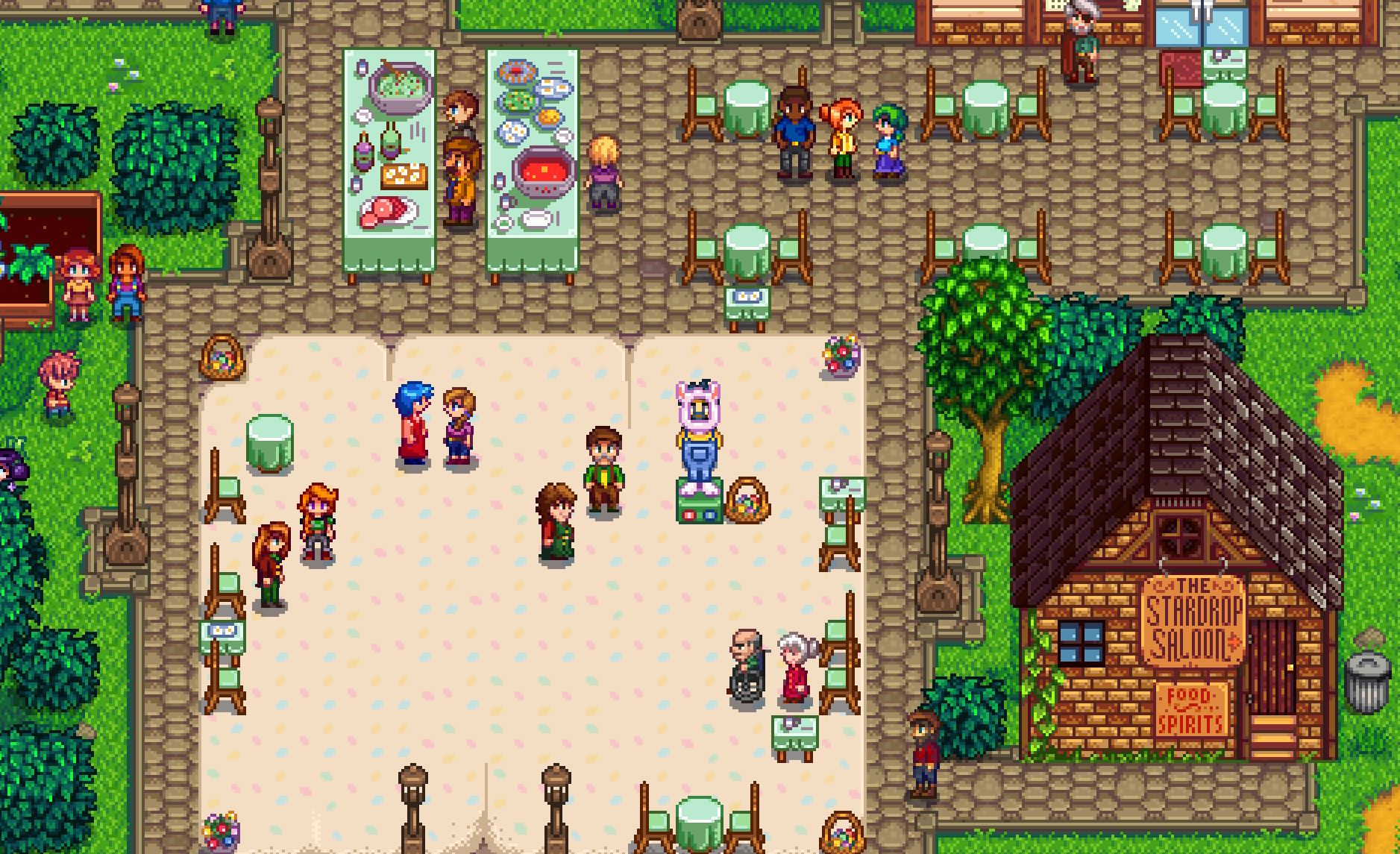
So far, Stardew Valley is the surprise hit of 2016. It's been one of the most-played games on Steam since it launched on February 26, on the top sellers list just as long, and has recently found itself as one of the most watched games on Twitch. That's impressive for any game, but the story of its creator, Eric "ConcernedApe" Barone, makes that success even more incredible.
Barone is the sole developer of Stardew Valley, singlehandedly authoring the game over a period of four years. And now, in a mere 12 days, Barone has sold over 400,000 copies of his game. In less than two weeks, he's gone from being a part-time theater usher (who's making a game on the side) to what we can only assume is a multimillionaire—and the only name behind one of the most exciting indie games of 2016.
I spoke with Barone about the unexpected success of a game he says basically started out as a Harvest Moon clone to teach himself how to code in C#. We also talked about what the money means to him, what's coming next to Stardew Valley, and a Stardew secret that no one has found yet.

PC Gamer: You made the whole game—absolutely everything in it—by yourself, right?
Eric “ConcernedApe” Barone: That's correct.
PCG: So that's art, sound, music, coding, everything?
EB: Yes.
Keep up to date with the most important stories and the best deals, as picked by the PC Gamer team.
PCG: How how long did that take?
EB: I think I've been working on the game for about four years. I mean, part of that was me redoing pretty much everything in the game multiple times, because when I first started I had no pretty much no experience. I had never done pixel art before, I had just very little coding experience, and the earliest versions of the game were, in my opinion, pretty horrible. So as my skills improved over time, I kept wanting to redo everything and improve on it, so that's part of the reason why it took four years. And I worked really hard the last four years, so I mean I can't even begin to estimate how many thousands of hours that I've worked on the game, but it's a lot.
PCG: If you weren't very experienced with coding and hadn’t done pixel art and that sort of stuff, why tackle this huge project to teach yourself everything like that?
EB: You know, there's many reasons. For one, I just graduated from college with a computer science degree and I didn't really know what I wanted to do. I had applied at a few places and had interviews and I didn't get those jobs. So I was thinking “what am I going to do,” you know? I've always been into games. I've always been into doodling and making music, writing and all the various aspects of making a game, but I’d never really thought about the fact that I could combine all those things and actually be a game developer. But I was looking for jobs, and I was thinking I would need some way to get better at programming, so I decided to start fooling around with making a game in C#.
I just thought it would be a small little thing. It would take me a couple months [...] But then—I don't know, for some reason I just kept deciding I wanted to go bigger and bigger...
As someone who had always grown up spending countless hours playing Harvest Moon and a huge Harvest Moon fan, and then always looking on PC to try to find like a fan-made or an indie Harvest Moon clone—I was never able to do that. I looked like all over the internet for it and I never found anything satisfying. So here I was deciding I would make a quick little game to try to learn how to code in C#, I decided I would make a Harvest Moon clone. Four years later that eventually evolved into Stardew Valley. At first it was just going to be a way to practice and get better at programming.
PCG: At what point in the process did the scope shift? When did you say “wow, this is actually really fun and I want to keep going?”
EB: It was actually pretty early on—but my ambitions for the game grew over time. At first I thought it was just going to be something I would release on Xbox Live Indie Games, which is kind of a free-for-all. Anyone can publish a game on there, I just thought it would be a small little thing. It would take me a couple months, I would post it to Xbox Live, and that would be it. But then—I don't know, for some reason I just kept deciding I wanted to go bigger and bigger with it.

PCG: How how does it feel after four years of work to see the game become so immediately popular?
EB: It feels great. It really feels great.
PCG: Were you expecting this sort of reception?
EB: I wasn't, no. I mean, I thought it would be popular with people who were fans of Harvest Moon or Rune Factory, and I thought that would pretty much be it. I never expected it to have such wide appeal. I mean, I'm super happy about it and I'm blown away by the reaction, but I'm surprised too.
PCG: What do you attribute that appeal to? Because it's obviously struck a chord with a large portion of PC gamers.
EB: I've spent a lot of time thinking about that, and I'm not exactly quite sure, but I have some theories. I think maybe it has to do with just ‘indie’ in general. Like what are indie games? What should indie games be about? I think that one of the things that's special about indie is that it's kind of a personal connection between the creator of something and the audience. And it's kind of rare, I think, that someone made a big game entirely by themself, and I think that makes it a lot more personal, and that's kind of what people are looking for in an indie game. Maybe they didn't even realize that’s what they're looking for, but it's kind of what makes 'indie' special, you know? It's not some faceless corporation that is giving you a focus tested message or focus tested experience. It’s this raw connection between the creator and the audience. I think maybe people are ready for that sort of thing.
PCG: The last game I can think of where a lone developer made a game that has seen this much excitement and this much success so rapidly was with Minecraft and Notch—which is a huge bar to be compared to.
I definitely thought about Notch. [...] If you have a vision and the drive to turn that vision into reality, there's basically no limits to what you can achieve, and that was really inspirational.
EB: Oh, I definitely thought about Notch. It was definitely an inspiration. I mean, of course, I never thought I would achieve that kind of success—and I still haven't even come close to his kind of success. But when I started working on Stardew Valley, it was around when I had started playing Minecraft as well and I was thinking this proves that an indie game—there's no limits, basically. If you have a vision and you have the drive to turn that vision into reality, there's basically no limits to what you can achieve, and that was really inspirational.
PCG: So how many copies of Stardew Valley have you sold so far?
EB: Um, let me see. Let me refresh my little Steam back-end here.
PCG: You just have that open all the time?
EB: [laughs] Yeah, I've just been refreshing it all day. It's pretty exciting. I think it's at around 380,000 units.
[Note: This interview took place on 3/8, so I asked Barone for a more current figure. As of 3/9, he said there have been roughly 425,000 sales across Steam and GOG.]
On the next page: What the money means to Barone, and what he still wants to add...


